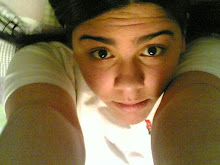Thursday, October 7, 2010
Hrothgar starts off thanking God. This appeals to Beowulf, who is deeply religious, despite having been affected by Heorot's influence. Hrothgar sounds as if he has experienced the rapture: "It is a miracle how the mighty Lord in his generosity gives wisdom and land and high estate to people on earth" (lines 1708-1711). Then Hrothgar touches on his own faults. He says, "he suffers no setbacks until the seed of arrogance is sown and grows within him" (1722-1724). Hrothgar places himself at blame, saying, "he does not know how to resist the devil's insidious, secret temptations" (1730-1731). Hrothgar makes in clear that he is to blame because of his naiveté as a ruler. He goes on to warn Beowulf from becoming selfish and prideful. Hrothgar says that death will eventually come for Beowulf, saying in essence that he should be good as long as he is on earth, because it is only a short time. Hrothgar continues to say that he thought he had no enemies, and that he had overlooked Grendel. He thanks God once more to show his conversion. His last sentence is directed to Beowulf, in which he says, "we shall share many treasures" (1767), which seems as though he will slip back into his life of materialism.
Subscribe to:
Post Comments (Atom)

No comments:
Post a Comment